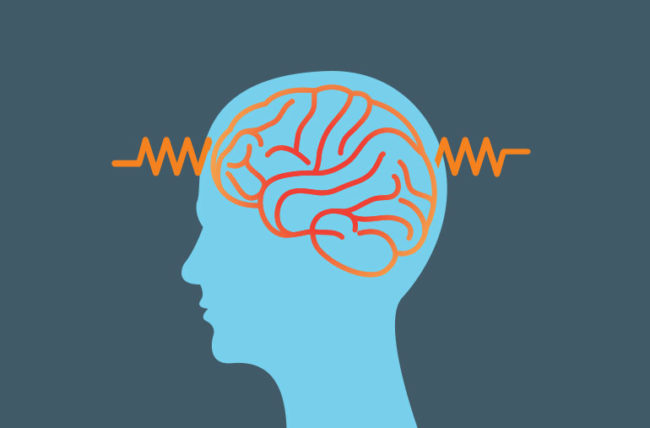Expanding Our Understanding Of CBD
Even though it seems like there are thousands of studies on CBD, this amazing cannabinoid still continues to be a focus of fascination for the scientific community. Recent research is exploring how we can utilize CBD to better the lives of humans around the world.
One of the most utilized methods of research is studying the effects of CBD on mice. This method is used as a precursor to human studies to determine any potential outcomes that may be harmful and to gain a thesis on how humans may be impacted.

What is CBD
CBD is short for cannabidiol, a cannabinoid commonly found within both the hemp and marijuana plants. According to the American Chemical Society, “Israeli scientists led by Raphael Mechoulam discovered in 1970 that cannabidiol and most other cannabinoids are not psychoactive.”
Multiple studies have shown CBD to have various properties that have made it popular among many people. These properties include;
Anti-Inflammatory
Drowsiness
Potential to help with PTSD and other mental illnesses (still under current evaluation)
While these properties are just some of the main reasons CBD has become so popular, there is a focus on CBD research that is expanding our understanding.
A Study in Memory and Motor Performance
In 2019, researchers at the University Medical Center Gottingen in Germany studied the effects of prolonged CBD treatment on the effects of memory and motor performance in mice. According to the paper published by Frontiers in Behavioral Neuroscience, “All animals were handled according to the guidelines of the Federation of European Laboratory Animal Science Association (FELASA) and approved by the “Lower Saxony State Office for Consumer Protection and Food Safety” (LAVES).”
The mice were given measured servings of powdered CBD daily for 6 weeks and observed through anxiety, motor, and memory tests. A control group was also used to create a reference for comparison to the mice that had consumed the CBD.
Researchers used a variety of tests to study the mice. The Morris Water Maze test, The Open Field Test, and the Dark Light Box were all used to study the memory and behavior of the mice that had consumed CBD and the control group.
Their results found that CBD does not affect motor performance. According to the paper, “Both vehicle and CBD-treated animals of the former and current treated groups showed a significant increase in motor performance over the eight trials.” Additionally, researchers concluded CBD has no influence on body weight and anxiety behavior, nor does it alter spatial memory or spatial reference memory.
Making Strides in Alzheimer's Research
The research surrounding how CBD can be used for the health of our brains and combating problems with no current cure has led to studies such as the one conducted by the Medical College of Georgia at Augusta University. In 2021, researchers published their findings regarding using CBD to reduce the build-up of beta-amyloid plaque, a “hallmark” of Alzheimer’s Disease.
The two week study explored the usage of CBD to target the buildup of plaque and neurofibrillary tangles on and in the neurons inside our brains. The thesis centered on targeting these tangles and plaque early on before the onset of dementia, a precursor to Alzheimer’s. Researchers theorized CBD could be used to assist in the repair of damaged neurons.
According to the study, “They found CBD appears to normalize levels of IL-33, a protein whose highest expression in humans is normally in the brain, where it helps sound the alarm that there is an invader like the beta-amyloid accumulation. There is emerging evidence of its role as a regulatory protein as well.”
The results in this study have prompted researchers to look further down the path to determine how early treatment would need to be started and how large serving sizes would need to be in order to be effective. Research is still ongoing and will need to reach human trials before any solid conclusions can be made and gain FDA approval.
Exploring the Usage of CBD and Spatial Memory
A similar study published in 2022 by researchers at Western Sydney University and the University of New South Wales explored the impact of CBD usage on spatial memory using mice. Their theories were based on the fact that “cannabidiol (CBD) exhibits properties beneficial for multiple pathological processes evident in dementia.”
The study was conducted using female heterozygous transgenic mice that were 14mmonths of age. All mice used in the study exhibited symptoms similar to dementia and Alzheimer’s disease found in humans. The mice were given 100mg/kg of CBD and observed starting three weeks before conducting behavioral tests relevant to frontotemporal dementia and Alzheimer’s disease.
According to the study, “Chronic remedial CBD treatment ameliorated several disease-relevant phenotypes in 14-month-old TAU58/2 transgenic mice, suggesting potential for the treatment of tauopathy-related behavioral impairments including cognitive deficits.”
Paving The Way To The Future Of CBD
CBD has made amazing strides within the medical and scientific communities. Part of that thanks can be attributed to the lab mice used in hundreds of studies that allow us a greater understanding of how CBD and other cannabinoids work. Studies such as the ones conducted in Wales, Australia, the United States, and Germany would not have been possible without them.
As a partial result, the focus on CBD’s use on the brain is a popular and widely researched topic in recent years. CBD opens a new route to a possible treatment option that was not accessible before. Even though more in-depth research is needed, including human trials, to fully understand how to use CBD. The same can be said of the research surrounding other minor cannabinoids that have gained popularity in recent years.
This kind of research is a necessary part of understanding how CBD and other cannabinoids can be used to treat a variety of ailments we may not have cures for yet. While there are no definite outcomes for any cures as of yet, the positive results seen in these studies open new avenues not previously explored. Even though it could take years for us to fully understand this wonderful cannabinoid, current research is already making exciting waves.





